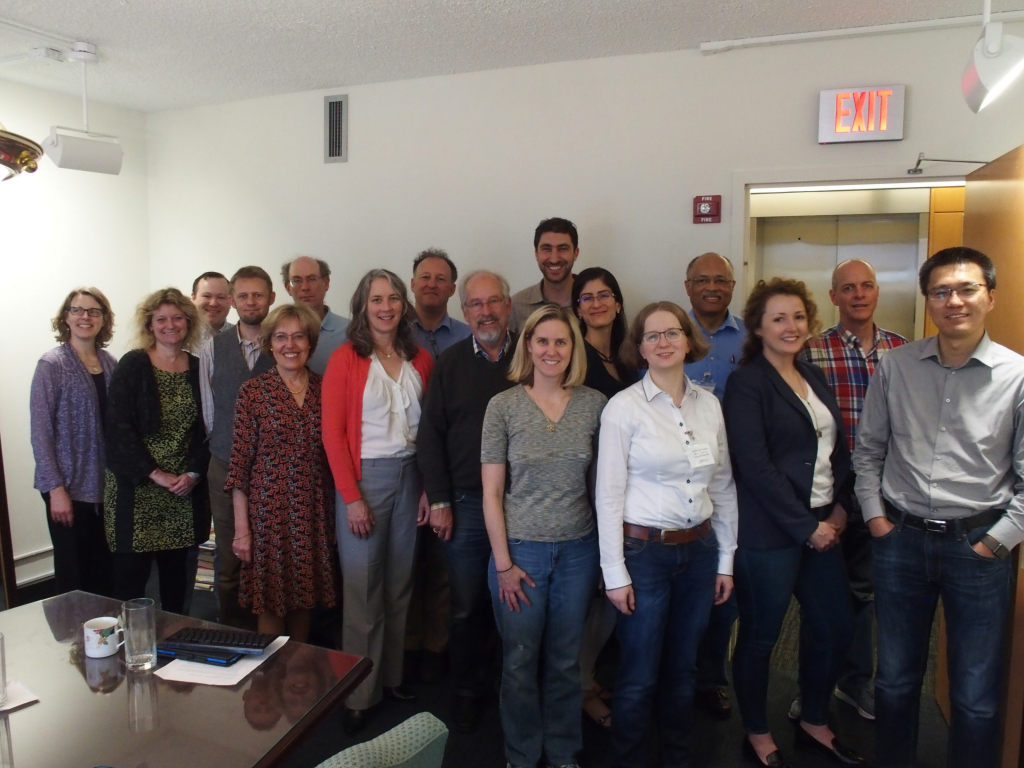Related Content
- Blog post: Community and Connections: Report on Day 2 of SCORAI 2017 Workshop: Bridging Research, Action, and Policy
- Blog post: Report on Day 1 of Bridging Research Action Policy, the SCORAI 2017 Workshop
The SCORAI Working Group Action and Policy was formed during the Conference in Maine, June 2016. Its core group presently consists of 6 members. Its main objective is to bridge the gap between knowledge and action; which means seeking how to apply SCORAI knowledge for action and policy; and to investigate which knowledge gaps from activists and policy makers SCORAI should address.
The group has so far produced a Founding Document and a questionnaire in which SCORAI members are asked to document their activities bridging knowledge and action. Recently it organized workshop; see the short summary below. A full report will be posted mid-June 2017.
We welcome new members with fresh ideas; send an email to deric@uw.edu to be added. We are currently working on the follow-up of the workshop; and investigating how to raise funding.
SCORAI workshop in Washington DC May 6-7, 2017:
Sustainable Consumption: Bridging Research and Action and Policy Workshop
This workshop was organized by the SCORAI Working Group on Action and Policy with support from the SCORAI Board and the Baha’i Office of Public Affairs in Washington DC. 18 participants: 9 practitioners and 9 researchers convened in the Baha’i office for two days, discussing how to bridge the perceived gap between research, action, and policy. The first day contained short “flash” presentations by five practitioners and five researchers; with questions and discussions; and ended with break-out groups around a set of questions. The second day opened with a summary by our blogger Ethan Goffman; and reports from the break-out groups. A few more flash presentations about communication and faith-based groups created the right conditions for a second round of break-out groups; this time the groups were organized around themes that emerged from the presentations and discussions. The following themes were discussed in the groups:
- Making use of the “Sustainable Lifestyle Model” presented by one of the researchers
- How to support alternative urban lifestyles by millennials
- Centering sufficiency values through practice and policy
- Exploring post-consumer society
From the very first day it became clear that sustainable consumption is a difficult issue for practitioners and actioners: for instance in the US Climate Action Network it is hardly mentioned by any of the coalition partners, with the possible exception of faith-based groups. The group had also a lively discussion around social marketing. It became clear that cities constitute a promising area for policies and actions for sustainable consumption. It also became much clearer which type of research could be useful and usable for action and policy; and how research could help to make non-scientific concepts more based on research and science.
The break-out groups were energized to follow up on their issues, and the organizing working group will act as coordinators for these activities. In the next 1-2 weeks a more elaborate report of this workshop will be posted on the SCORAI website.
For more information, or if you want to join the core group, please contact Deric Gruen deric@uw.edu or Philip Vergragt pvergragt@tellus.org

